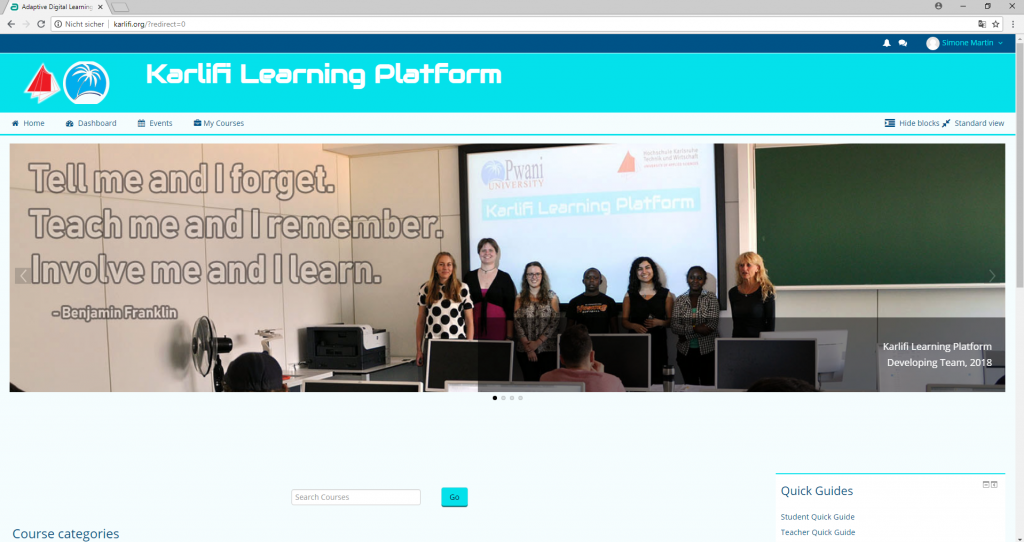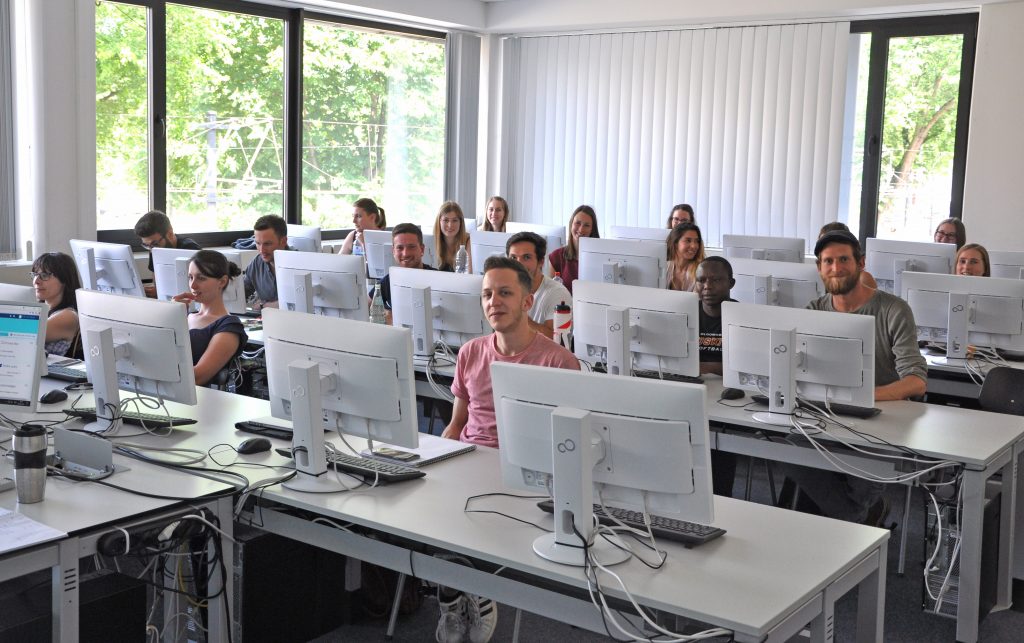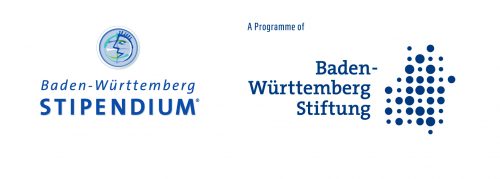
Karlifi Learning Platform is a key part of the ADDI project (ADaptive DIgital Learning System Development for the Expansion of Technical Communication and the multicultural and multimedial Exchange in Kenya and Germany) which aims at internationalizing the Communication and Media Management study programs at Karlsruhe University of Applied Sciences. The ADDI project is part of the Baden-Württemberg-STIPENDIUM for university students – BWS plus, a programme of the Baden-Württemberg Stiftung and runs from 1/9/2017 until 31/8/2020. The platform has been set up by 4 students in the framework of the master course “Content Strategy and Information Architecture with DITA 1.3” of Prof. Sissi Closs.
Objective
The objective of the master project was to establish an e-learning platform that provides learning content for KMM students and students at Pwani University in Kenya, as well as for different target groups in the framework of a Women Empowerment Project in Kenya on a long-term basis.
Therefore, the necessary configurations must be implemented and an instructional guide for managers and users of the platform must be available. It should also provide input on how the e-learning platform and guides can be attended to after project closure. This includes the development of a class concept to give a deeper insight into the development and usage of the topic-based information architecture and a documentation including reasons and explanations on the decision-making process during the project run.
Furthermore, first contents in the form of experience reports of the involved exchange students from Pwani University
and results of the other groups’ projects should be presented on the e-learning platform.
Motivation
The decision to elaborate this task is reasoned in five aspects: writing software documentation, creating a product, learning about the background of a learning platform, the influence of culture and internationality as well as creating a suitable information architecture for a diverse project.
- One team member has a great interest in writing software documentation. She is working besides her studies and writing at software documentation at her workplace. So, this is for her a good practice and the team could benefit
from her experience. More important was that she could deepen her expertise in working with DITA. - The second aspect was creating a product. It was important for us to have a product to test before writing the documentation. It was also the fact that something was started from the beginning. So, it was interesting to create the base frame for the learning platform.
- The third interesting aspect was to learn about the background of a learning platform. The students were already using learning platforms in their Bachelor studies. So, this topic was common for all. However, it was an incentive to learn the background of configuration and exploring the different sides. The reason is to get a closer look at a known tool.
- The cultural aspect was also an important aspect. The configuration of the learning platform had to consider two quite diverse cultures – the German one and the Kenyan one. So, the motivation here is to find out about the differences between the two cultures and how this could affect the configuration/complete project.
- The last interesting fact was creating an information architecture for a platform like Moodle which has a lot of
possibilities and is diverse. The team had to unify this for German and Kenyan use and create a suitable information
architecture. The team also had to find out which functions are to be used and which not.
Target Groups
Throughout the project it was essential to differentiate between different user groups and take into account the individual’s level of expertise. Since our information architecture is DITA-based, a good knowledge of DITA is a major advantage. Apart from that, experience in creating and working with class concepts and other concepts used for information architecture in general will help to quickly start working with our information architecture. Thus, 3 target groups were defined and adressed:
Experts
An expert would be a person who is familiar with concepts and tools used for information architecture and the principles and fundamentals of DITA. The expert is used to working with and interpreting class concepts or related models and is accustomed to DITA features and tagging. The expert’s knowledge allows them to gain an understanding of the working principle of our information architecture by consulting our class concept and preexisting documentation. On the basis of these, the expert will be able to apply our information architecture structure to topics of their own.
Novices
An Information Architecture and/or DITA novice, on the other hand, would be a person who has no or very limited experience in setting up an information architecture and has not worked with DITA before or has minimal knowledge of DITA.
Intermediate Users
For intermediate users the answer to the question most probably lies somewhere between, depending on their previous knowledge and ability to understand.
Result and Future Prospects
The result of the project is a learning platform that can be administrated and used on the long-term by different target groups. The objective to integrate first content into the platform has been achieved: Targeted users can now access and read the experiences of the exchange students in the framework of the ADDI project and learn from the results of the other Master’s projects that are presented on the platform.
The documentation was created with DITA 1.3 and all topics were collected in one large map. With filters the
documentations for the four roles (Student, Teacher, Manager and Administrator) were exported in HTML, webhelp and PDF. The PDF version is for offline use because the users of the Karlifi Learning Platform can download this version. The webhelp version is for online version. So, the users can read the documentation in case of a problem and can solve the problem at the same time.
The team has created the category “Karlifi User Manuals” for the documentations including the two courses “Documentations” and “Quick Guides”. The Quick Guides are available from everywhere on the platform which enables the users to have a look in the quick guide and still work on their problem on the platform. For the future, the documentation must be updated in case of changing or adding parts on Karlifi Learning Platform. If needed, also the editorial guide should be updated.

Tools and Techniques
- DITA 1.3
- Oxygen Editor 19.0
- Klassenkonzept
- Moodle
- SCRUM
Project Team
- Anita Ahmadpour
- Angela Koch
- Marie Lange
- Anja Wilhelm
Baden-Württemberg-STIPENDIUM
The Baden-Württemberg-STIPENDIUM supports the international exchange of students and vocationally qualified people/young professionals. Since 2001, it has enabled more than 20,000 young people from Baden-Württemberg to spend some time abroad and allowed scholarship holders from other countries to get to know Baden-Württemberg. Each year more than 1,000 young people receive a Baden-Württemberg-STIPENDIUM.
www.bw-stipendium.de
Baden-Württemberg-STIPENDIUM for university students – BWS plus
Through the programme Baden-Württemberg-STIPENDIUM for university students – BWS plus, the Baden-Württemberg Stiftung supports innovative joint projects between universities from Baden-Württemberg and their international partners. The programme, which provides funding of around 800,000 Euros per year, began in 2011 and since then has supported more than 50 projects.
Baden-Württemberg Stiftung
THE BADEN-WÜRTTEMBERG STIFTUNG advocates a vital Baden-Württemberg with a high quality of life. It helps pave the way for top-class research, many kinds of educational measures and responsible dealings with our fellow men. The Baden-Württemberg Stiftung is one of the major foundations in Germany. It is the only foundation which invests exclusively and without partisanship in the future of Baden-Württemberg, and thus in the future of its citizens.
www.bwstiftung.de


